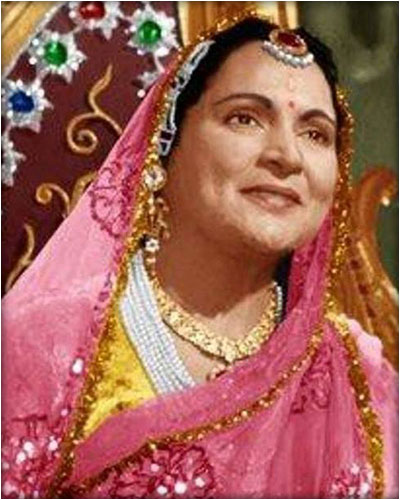Siddharth reveals he was worried if Aditi Rao Hydari would say yes to him
- 20 Apr - 26 Apr, 2024

DOB: January 14, 1905
Star sign: Capricorn
Birthplace: Bombay, British India
Occupation: Actress and film producer
• Durga Khote became as one of the foremost leading ladies of her times, she remained active in Hindi and Marathi cinema, as well as theatre, for over 50 years, starring in around 200 films and numerous theatre productions.
• In 2000, in a millennium issue, India Today named her among "100 People Who Shaped India", noting: "Durga Khote marks the pioneering phase for women in Indian Cinema", as she was one of the first women from respectable families to enter the film industry, thus breaking a social taboo.
• She also ranks among the top ten actresses in mother roles in Hindi cinema. She has received the highest award in Indian cinema, the Dadasaheb Phalke Award (1983), for her lifetime contribution.
• A postage stamp, bearing her face, was released by India Post to honour her on May 3, 2013.
• Durga was born to a family which hailed from Goa and spoke Konkani at home. She studied to get a B.A. While still in college, she married into the Khote family, graduated and settled down with her husband.
• By the age of 26, Durga was a widowed mother with two young sons. She had to seek work in film to support her children. In doing so, she became a pioneer of sorts, as most of the female characters were played by men at the time.
• She debuted in a minor role in the silent film Farebi Jaal (1931) followed by another film and was soon promoted to play heroine in the 1932 Hindi and Marathi versions of Ayodhyecha Raja which was the first ever Marathi talkie, and proved to be a runaway hit.
• She broke away from the "studio system" (exclusive contract with a studio to work in its films on a monthly salary) then in vogue and became one of the first freelance artistes of that era by working occasionally with other companies, thus, pioneering another trend.
• In 1936, she played Saudamini in Amar Jyoti, which is one of her most memorable roles.
• In 1937, she produced and directed a film titled Saathi, making her one of the first women to step into this role in Indian cinema. The 40s opened for her in a big way, with award-winning performances in Payachi Dasi (Marathi) and Charnon Ki Dasi (Hindi), and the classic Bharat Milap, both of which got her the BFJA Best Actress Award for two consecutive years.
• Durga was actively associated with the Indian People's Theatre Association (IPTA). In 1954, she famously performed the role of Lady Macbeth in the Marathi adaptation of Macbeth.
• During later years, she played several important character roles, such as her portrayal of Jodhabai in Mughal-e-Azam (1960), the role of the grandmother of the heroine in Bobby (1973) and the hero's aunt in Abhimaan (1973). She received the Filmfare Best Supporting Actress Award for her memorable role of a mother in Bidaai (1974).
• Her final memorable role was in Karz (1980), where she played Rishi Kapoor’s mother. By the 1980s, she successfully diversified into production of short films, ad films and documentaries by setting up Fact Films and later, Durga Khote Productions.
COMMENTS